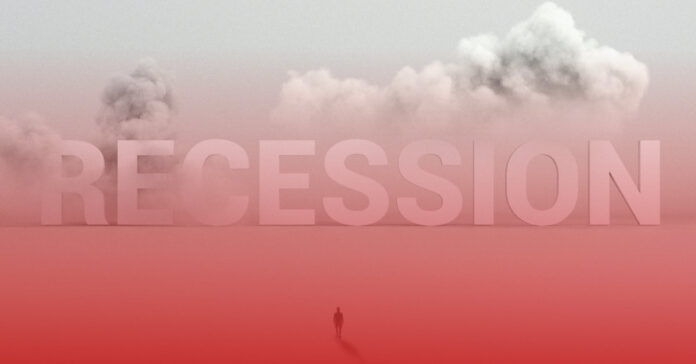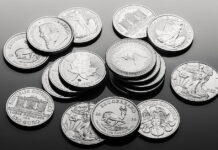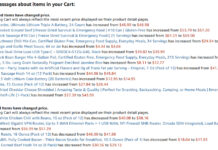Earlier this week, the Federal Reserve, the central bank of the United States, raised the benchmark federal funds rate 0.75 percent for the fourth consecutive time. That’s a 3 percent raise, which just about quadruples the interest rate to almost 4 percent.
As rates rise, anyone who borrows money will continue to pay more for the “privilege” of doing so. Expect the interest rates on mortgages to climb further, making home ownership less affordable. Expect to pay more on credit cards, car loans, and any other time you borrow money.
Our advice: Don’t borrow money. Pay cash instead. If you can’t pay cash, don’t buy it.
That may sound anti-American, but it’s a sound strategy. Just because you live in a debt-driven society doesn’t mean you have to partake. (Keep in mind that I am not a financial advisor and this is not financial advice.)
Mortgages
Rates for a 30-year mortgage have climbed from around 3 percent to 8 percent, and that requires a 20 percent down payment and a credit score over 700. If you buy a $400,000 house, put down $80,000 and borrow the rest over 30 years, your monthly payment will be about $2,345. When rates were 3 percent, the payment would have been $1,000 less. Thanks to rising interest rates, the cost of buying that new home just increased $12,000 a year.
Look at that monthly rate and do some quick math and you’ll see it will cost you more than $28,000 to live in your new home for a year. (The same house would have cost $16,000 a year ago). Add in insurance and taxes, and you’ll be spending at least $36,000 per year. No wonder they say there is no such thing as a “starter home” anymore.
Worse yet, if you live in your house for 30 years with the same mortgage, you will have paid your mortgage company more than $840,000, or close to 2.4 times the amount you borrowed. Sure, if rates drop in the future, you can try to refinance, but there’s no guarantee rates will drop or that you will qualify after a recession.
If you think that’s highway robbery, don’t look at your credit card bill. The rate for cards is 20 percent or more.
High Rates and Recession
It’s not just the American consumer that is living in a debt-driven society. Businesses also borrow money. As the Fed raises interest rates, their cost of borrowing goes up. As a result, businesses borrow less money. That means they spend less on capital improvements such as new plants, more advanced equipment, and launching new products. Many companies get squeezed by rising debt, so they cut back on their expenses. What’s the easiest way to save money? Fire some employees. (Take Elon Musk firing half of Twitter’s staff as an example.) They’ll also cut back on things like advertising, try to reduce benefits, restrict travel, have a smaller trade-show booth, etc.
When people get laid off, they have less income and they have less income, so they spend less money. The result is that many companies see their sales drop. The result? More layoffs, and the cycle repeats.
Not only do many people stop buying discretionary things like RVs, boats, personal watercraft and firearms during a recession, some of them sell their “toys” to raise money. As the number of sellers increases and the number of people with spending money decreases, it will become a buyer’s market. That’s when people with cash can pick up some deals.
Rising rates also drive up the cost of borrowing for the government. That means more of our tax dollars go to pay interest. The U.S. has a deficit of $31 trillion. Care to guess what the interest payments on that would be at 4 percent? Here’s hint: It’s more than all the Social Security payments for the year. Good thing we don’t have to refinance that entire debt this year.
High Rates may be Necessary
High interest rates make life difficult for anyone who borrows, but the side effects of an interest-rate driven recession will impact us all. Just look at the stock market or the value of your retirement savings as an example.
The problem is that while a 4 or 5 percent Federal Funds rate is enough to create a recession, it isn’t enough to stop inflation. The Fed Rate is only half the rate of inflation, and as we discussed yesterday, the rate of inflation reported by the government is only a fraction of the true rate being felt by consumers. This is what will lead to stagflation, which is a period in which inflation and a recession coexist.
It is my belief is that we won’t tackle inflation until the Fed Rate goes well into double digits, so we’ll be stuck with stagflation for years. That means:
- Many more job losses and layoffs
- More car repossessions and lower car sales
- A sharp uptick in mortgage foreclosures
- Continued food inflation
- Higher energy costs
- More personal bankruptcies
- More homelessness for economic reasons
- An increase in business closures and bankruptcies, especially restaurants and other small businesses.
- A falling stock market
None of that is good, but living with it for the rest of the Biden presidency is going to move us from recession to depression.
I think we need to rip off the Band-Aid. Instead of slowly raising rates and sending the country into a long recession, we need to jack up rates. That will send the country plummeting into a recession, but we are likely to bounce out of it more quickly. Higher interest rates are deflationary because they take money out of the economy. Will it be ugly? Yes, but it will be over more quickly.
Side Effects
Whether the Fed pulls off the Band-Aid over a period of years with repeated small increases or rips it off all at once, we’re still going to suffer. High inflation is here, and it looks like it’s climbing higher. There is no easy way out, although the Biden administration is probably going to try a few things that history has proven don’t work, such as price controls.
Think of this as the economic hangover that resulted from years of over-spending and stimulus. Just as you can’t take speed for years without suffering side effects, you can’t artificially amp up the economy and expect it not to crash. One way or another, we are going to live through that crash. The question of whether you feel the pain or simply observe it will depend on your savings, your income stream(s), your investments, how much you are leveraged, and how well you are prepared.
Good luck to us all.







